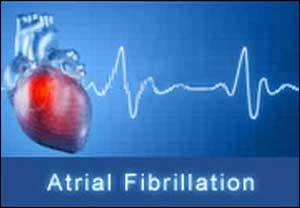- Home
- Editorial
- News
- Practice Guidelines
- Anesthesiology Guidelines
- Cancer Guidelines
- Cardiac Sciences Guidelines
- Critical Care Guidelines
- Dentistry Guidelines
- Dermatology Guidelines
- Diabetes and Endo Guidelines
- Diagnostics Guidelines
- ENT Guidelines
- Featured Practice Guidelines
- Gastroenterology Guidelines
- Geriatrics Guidelines
- Medicine Guidelines
- Nephrology Guidelines
- Neurosciences Guidelines
- Obs and Gynae Guidelines
- Ophthalmology Guidelines
- Orthopaedics Guidelines
- Paediatrics Guidelines
- Psychiatry Guidelines
- Pulmonology Guidelines
- Radiology Guidelines
- Surgery Guidelines
- Urology Guidelines
Cardioversion as first treatment strategy for AFib results in shorter ED length of stay: Clinical trial

Researchers at Department of Emergency Medicine at St. Paul's Hospital and the University of British Columbia, Vancouver have found in a multicenter randomized controlled clinical trial that cardioversion or electrical-first strategy results in a significantly shorter emergency department (ED) length of stay in the treatment of acute atrial fibrillation. As such both chemical-first and electrical-first approaches are effective strategies for acute atrial fibrillation. The study findings are published in Academic Emergency Medicine (AEM), a journal of the Society for Academic Emergency Medicine (SAEM).
The study may assist clinicians by demonstrating that the electrical-first strategy may restore sinus rhythm more quickly. The results should encourage clinicians to initially consider an electrical-first approach for such patients.
The trial results showed that in uncomplicated ED atrial fibrillation patients of less than 48 hours, a significantly greater proportion of ED patients were discharged from the ED within four hours when managed with an electrical-first cardioversion strategy, compared to a chemical? first cardioversion strategy. In addition, the median LOS was shorter by 1.2 hours for the electrical? first group.
The findings add to the literature by comparing two accepted treatments, measuring important outcomes--including patient-reported results--and demonstrating that these patients, irrespective of initial management strategy, are safe; have minimal discomfort after their ED visit; have an acceptable QoL at 3 and 30 days.
Commenting on the study is Editor-in-Chief of the Canadian Journal of Emergency Medicine, Ian G. Stiell, MD, MSc, a distinguished professor and senior scientist in the Department of Emergency Medicine, Ottawa Hospital Research Institute, University of Ottawa:
"This study confirms that both chemical-first and electrical-first approaches are effective strategies for acute atrial fibrillation. Immediate rhythm control by ED physicians allows rapid discharge of patients and early return to normal activities. Whether drug first or shock first should be determined by patient or physician preference."

Disclaimer: This site is primarily intended for healthcare professionals. Any content/information on this website does not replace the advice of medical and/or health professionals and should not be construed as medical/diagnostic advice/endorsement or prescription. Use of this site is subject to our terms of use, privacy policy, advertisement policy. © 2020 Minerva Medical Treatment Pvt Ltd